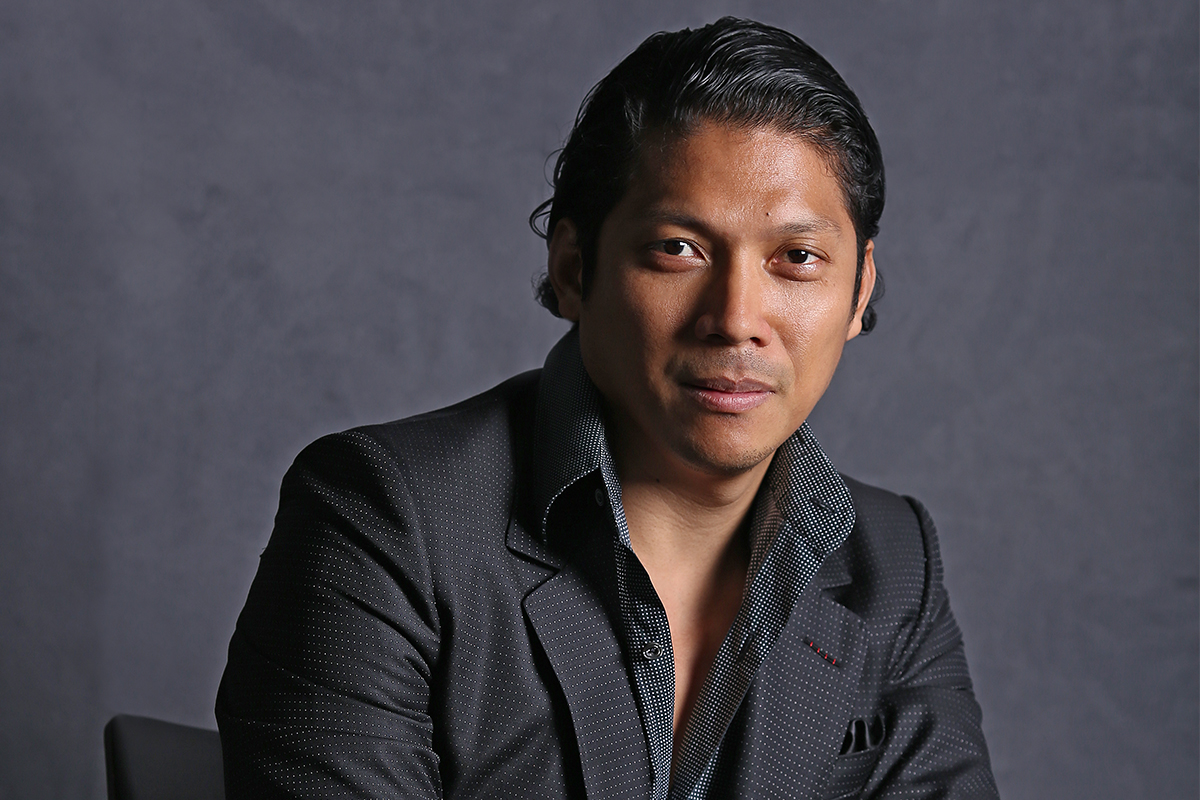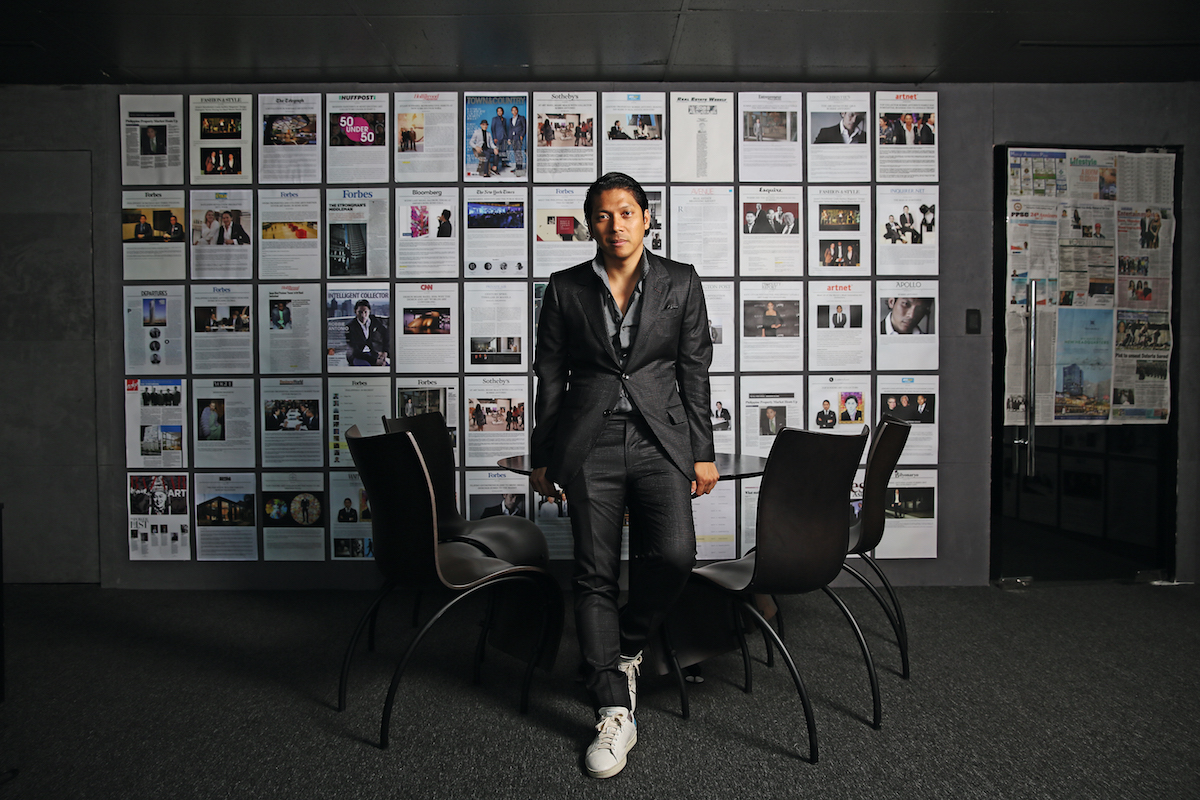The expression ‘celebrity property developer’ might not be one that’s entered the public’s consciousness, but if it’s applicable to anyone, it is to Robbie Antonio, CEO and Founder of Revolution Precrafted.
The 41-year-old developer, entrepreneur and connoisseur of art is the visionary behind a revolutionary concept – prefab buildings that are not just affordable, but also luxurious and stylish. Founded in December 2015, Revolution represents a partnership between prefab architecture and more than 80 world-class designers and firms such as Jean Nouvel, Kravitz Design and the Zaha Hadid architectural firm.
Though he’s still relatively young, Robbie has forayed into property development before launching Revolution. He founded Antonio Development in New York and has been responsible for the development of millions of square metres of luxury real estate across the Philippines and the US.

But these sorts of projects weren’t able to maintain Robbie’s interest indefinitely. With years of luxury architecture experience behind him, he came up with the unique concept of designer prefab. “I thought, ‘This is great, but I’m impacting one sort of developer in only one country,’” Robbie explains.
“I decided I wanted to be truly global, and have an asset-light business that could be nimble and disruptive. I amalgamated my contacts and created a business to reach the world. I still wanted luxury, but I wanted it to be affordable.”
Aiming high
Thus, Revolution Precrafted was born three years ago, and has since made history by becoming the Philippines’ first unicorn start-up, and one of the fastest to be acknowledged so, in South-East Asia. The specific inspiration behind Revolution was Robbie’s desire to make luxury housing widely available, both geographically and economically. Regarding the latter, there really is an option for everyone.
“You can expect that someone who wants a Philip Johnson Alan Ritchie Architects’ modular house would be very different from someone who wants, let’s say, a US$12,000 house from Revolution Basics, or from a more affordable designer,” says Robbie. “We’re trying to offer different sizes and price points.”
This is the essence of the mission driving Robbie. Revolution is not just a for-profit organisation; it’s a for-purpose one as well. That purpose is what he describes as the democratisation of design, while transcending economic and geographic barriers. This is Robbie’s way of giving back which, to a large extent, drives his work. It’s also one of the ways he defines his success.
Success is when you’ve done things not just to benefit yourself but to benefit others.
“Success is when you’ve done things not just to benefit yourself but to benefit others, whether it’s your clients, your employees, your suppliers or society at large,” Robbie says. “At Revolution, it’s important for us to democratise design as well, to provide things that people can’t necessarily access. I don’t think you’ve ever heard of a business that allows you to buy a prefab designer house for a little over US$100,000.”
Broad appeal
In pursuit of global reach, Revolution goes on roadshows, demonstrating its products to as wide an audience as possible. “We’re trying to add a bit more appeal and an aspirational element towards creating something that is potentially very impactful in myriad different countries,” says Robbie.
“We’re working on a plethora of deals right now. We’re trying to go for 25 countries this year, and we’ve already signed on 24, so we’re almost there. We also have US$8.5 billion worth of project revenues.” The effort to become international is clearly well on its way to being achieved. With a presence on most continents, the company only needs to continue that expansion into every country it can. “I’ve said we want to be in every region of the world – which we are – and then we can just execute products,” Robbie says.
“First, we want to cater to as many people in the world as possible, and then produce different products. Housing is our biggest business, but we also have other products such as pop-up retail properties, pop-up offices. Later this year, we’re going to announce and pre-sell our first prefab condo and prefab hotel.” Another of Revolution’s pulls is its flexibility towards its customers. “We’re listening to them and we’re trying to serve their specific needs,” Robbie says. “We won’t assume that clients from the US, Middle East or Europe will be the same as clients in South-East Asia.”

Myth busting
Despite the bright future ahead, Revolution still faces the challenge of preconceived notions of yesteryear. In transforming prefab architecture into a housing option both stylish and widely available, Robbie intends to dispel these myths. There is an unjust stereotyping of prefab structures
as being low-quality, bland and short-lived, a carry-over from a time before prefab was a desirable housing option.
Robbie believes the unique advantages of prefab are numerous. “The first value proposition we offer is speed,” he says. “Sixty to 90 days versus two years. The second is technology. There are certain technologies that actually enhance the product – 3D printing, advanced robotics, sustainable green technology, and so on.”
Robbie also believes Revolution is unique in its aesthetic and accessibility. “In terms of relevance, we naturally partner with designer brands,” he says. “We get the world’s best architects and designers, and their global exclusivity. Obviously, the house is going to be ultimately affordable, thanks to the technology. And most importantly, we are planning to be global.”
He’s therefore optimistic that the company will be able to correct any public preconceptions about prefab architecture. After all, he has a very philosophical approach to challenges: “Every day is a new day. Solve your problems. Tomorrow you’ll have something else.”
Rallying the team
Robbie stands at the forefront of Revolution’s expansion. He’s not content to sit back in Manila and lead from the corporate headquarters. Of course, that doesn’t mean he’s is out there on his own. He may be a leader, but a core part of his strategy is keeping the Revolution team focused on the mission, united behind a single cause and all working together. It is this element that Robbie believes sets apart good leaders from the rest.
“A leader is someone who can rally their team towards a common goal,” says Robbie. “Someone who can be inspirational. There are different styles of leadership. Some are softer, some harder. Some are steadfast in their goals, some are a little bit more caring and patient. But I think the common characteristic is to be able to rally your team.”
Fortunately, Revolution’s vision is innovative enough that it wouldn’t be difficult to inspire the team behind it. So, Robbie employs constant communication to keep his team completely focused on that shared vision. Otherwise, he believes, an organisation will have no chance for survival in today’s competitive market.
The ambition, resilience, persistence and heart has to be there every single day to create something global.
“What I’ve seen in other corporations, big or small, is that if there’s no alignment, there’s no shared goals and chaos erupts,” he says. “And I always say that Revolution is not for everyone. While we move at a very fast pace, we’re also a very ambitious group, so we like to encourage that as well.”
When Robbie describes the company as an ambitious one, this is no exaggeration. As well as providing designer prefabs to everyone, regardless of economic or geographic barriers, he envisions Revolution becoming the largest housing supplier in the world.
“To truly be disruptive, the goal has to be huge,” he says. “And the ambition, resilience, persistence and heart has to be there every single day to create something global. Modular prefab was not our end goal. Our goal is to be global, counter-cyclical and ubiquitous. And prefab is the means to that end.”


